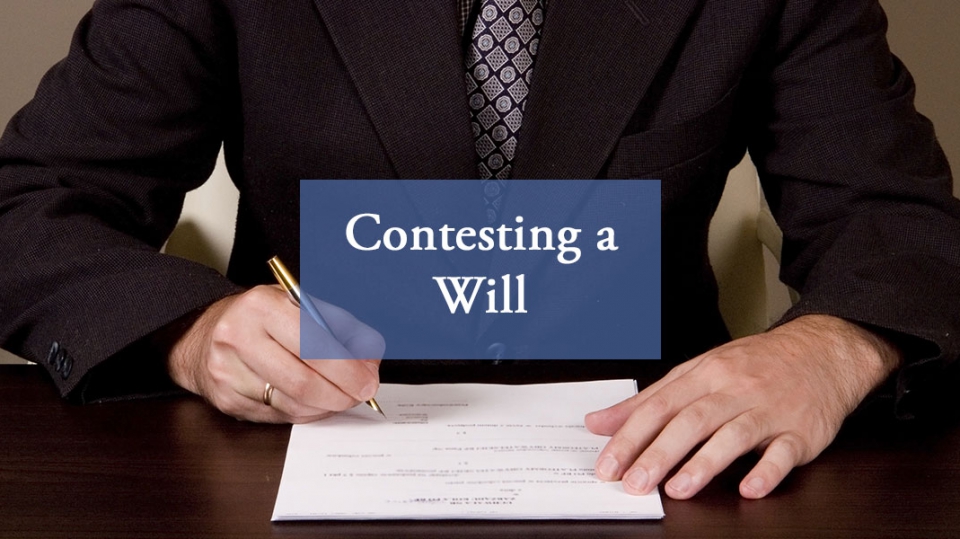The number of disputed Wills and other probate related disputes continues to grow. There are a number of reasons for this. Where there is money or property available for redistribution on death there is often a dispute. Family relationships have often become more complicated partly because there are often previous relationships or previous marriages and children from those.
We understand this is likely to be a very emotional time. We will investigate your conerns and offer a sympathetic but effective approach to advising you on a course of action that will hopefully prevent the bitterness and costs of court proceedings.
If you are concerned as to your entitlement under a Will, please contact our Ruth Brown or Colin Byford on 01702 349971 or by email at ckb@chennellssolicitors.co.uk who will be pleased to discuss your dispute with you.
How to Contest a Will
If you wish to contest the contents or validity of a Will then you should make an application to the Probate Registry for a Caveat. This prevents a grant of probate or grant of letters of administration being issued by the Court without you first being informed and which means the distribution of the deceased’s estate can be put on hold. The Caveat will last for six months. We can make these applications on behalf of our clients.
Please be aware that there are time limits for contesting a Will and legal advice should be sought swiftly.
Grounds for Contesting a Will
Generally you can contest a Will one on or more of the following grounds:
- Lack of testamentary (mental) capacity. You may be able to contest a Will if the Will was made by a person who was not of sound mind, memory and understanding. Generally this means that the person making the Will should not be suffering from a mental disorder, should understand the nature and effect of a Will, and be roughly aware of the size of their estate and who their family are. They should also be able to communicate their decision.Recent case-law suggests that if you wish to contest a Will on the ground of lack of testatmentary capacity, such as dementia, you should obtain a medical report on the mental capacity of the testator (even if they have passed away) as soon as possible.
- Lack of valid execution. By law, the Will must be signed (or acknowledged) by the person making the Will (testator). Two witnesses must also be present and must sign the Will in the presence of each other. This is often a problem with home made Wills.
- Lack of knowledge and approval. A Court must be satisfied that a testator knew and approved of the contents of a Will at the time he signed it. For example, you may be able to contest a Will on this ground where the main beneficiary of a Will has drawn it up and/or there are suspicious circumstances.
- Undue influence / duress / fraud. You may be able to contest a Will on one or more of these ground if you can show a relationship of influence between the parties or positive proof of coercion overpowering the choice of the testator, as well as proof of motive and opportunity.
- Claims under the Family (Provision for Family and Dependants) Act 1975. You may be able to make a claim for the deceased’s estate to be redistributed if you are a relative and/or dependant of the deceased and the deceased has failed to make reasonable financial provision for you in their Will.Generally applications to the Court under the Family (Provision for Family and Dependants) Act 1975 cannot be made later than six months after the date on which a Grant of Representation to the deceased’s estate has been obtained.
- Professional Negligence. You may be able to contest a Will because it does not reflect the wishes of the deceased as a result of being drafted negligently or contrary to the instructions of the deceased.
We will offer you advice on whether we believe you have sufficient grounds to contest a Will.
Consequences of successfully Contesting a Will
Successfully contesting a Will has the following possible consequences:
- Where there is an earlier Will, the contested Will will be revoked and the earlier Will will stand.
- Where there is no earlier Will, the contested Will will be revoked and the intestacy rules may apply.
- For claims under the Family (Provision for Family and Dependants) Act 1975, the Will may be adapted by redistributing the estate in order to make reasonable provision for the applicant.



